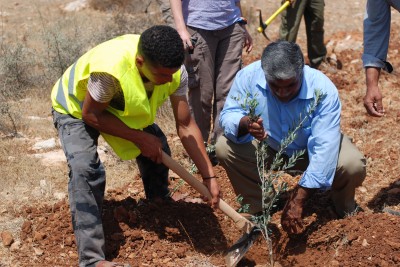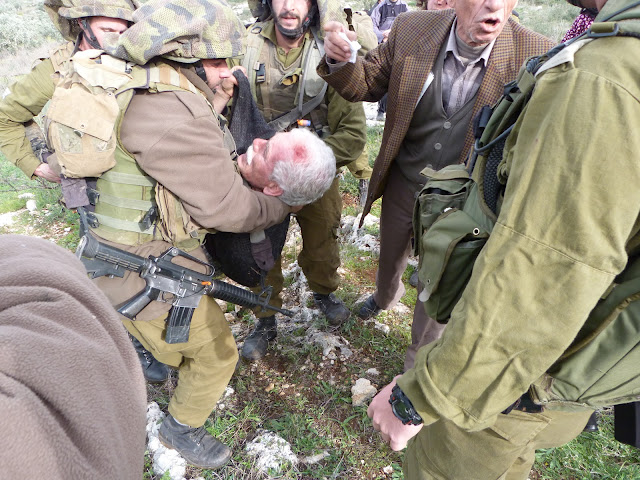Tag: Nablus
-
Turtles in Aqraba
by Jonas Weber 10 February 2012 | International Solidarity Movement, West Bank “Hurry up you turtles!” Wael yelled in the distance. He had suddenly turned this walk into some kind of contest. We skipped across the rocky landscape of Palestine, dirty and with the sun in our eyes. We were planting trees in the small…
-
In Photos: Settlers and Israeli military violently steal land in Kufr Qaddoum
6 February 2012 | International Solidarity Movement, West Bank On February 5 the residents of Kufr Qaddoum noticed several soldiers and illegal settlers on their lands who were plotting how to illegally seize land from the village. Upon arrival, International Solidarity Movement received word that indeed the colonizers were planning an action to seize land…
-
Breaking: Settlers and Israeli military move forward with plan to steal land
6 February 2012 | International Solidarity Movement, West Bank As of 2:00 PM today it was reported that two army jeeps were still on site in Kufr Qaddoum, in addition to one police jeep, while illegal settlers had left the scene of today’s violent incursion. Abu Ashraf, pictured below being dragged by Israeli military, is…



